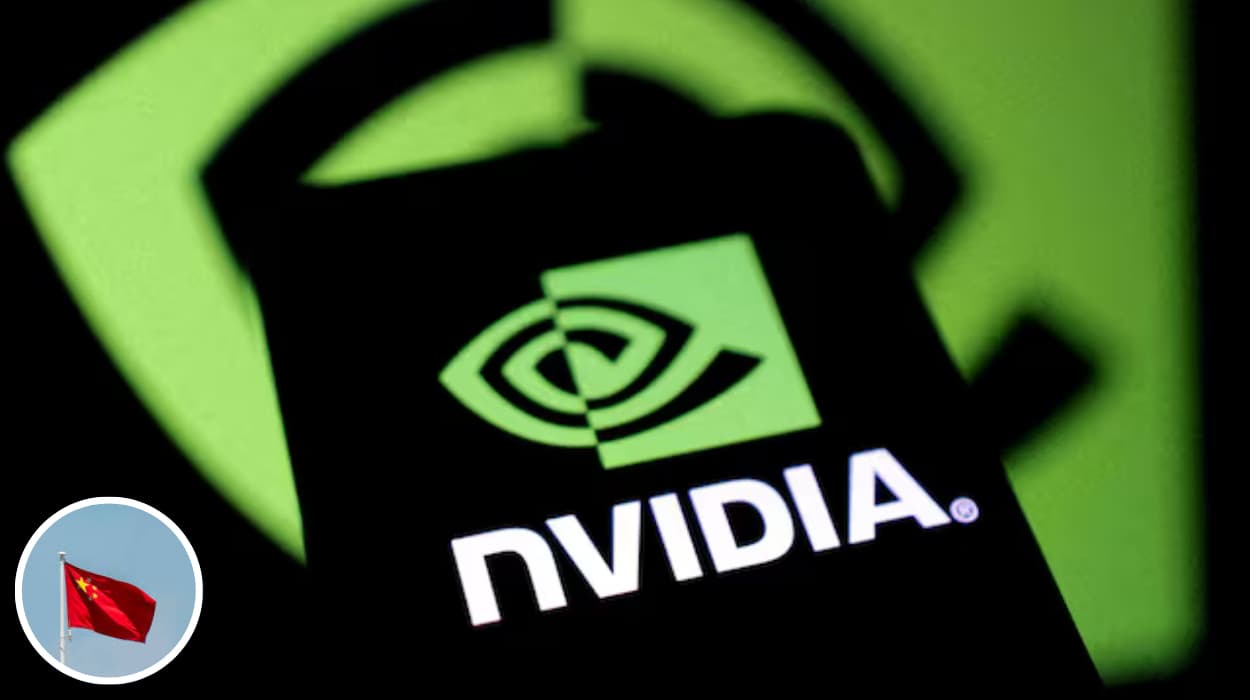Summary
- China’s state media demands Nvidia provide “proofs of security” to regain trust amid U.S.-China tech tensions.
- This comes after U.S. export controls restrict Nvidia’s chip sales to China.
- Chinese authorities emphasize national security concerns linked to advanced chip technologies.
- Nvidia’s role in supplying chips for AI and high-performance computing is under scrutiny.
- Chinese media reflect government position that technological self-reliance and security are paramount.
- Nvidia has not publicly responded to China’s specific demands yet.
- Context of broader U.S.-China technology rivalry and export restrictions affecting semiconductors.
China’s state media has called on Nvidia to provide concrete “security proofs” to regain trust amid escalating tensions related to U.S. export controls restricting advanced chip sales to China. This demand underscores Beijing’s heightened concerns over national security and technological sovereignty, particularly regarding high-performance GPUs critical for AI and other sensitive sectors. Nvidia, a leading American chipmaker, remains silent on these specific demands, navigating a complex geopolitical landscape shaped by U.S.-China rivalry. The situation highlights broader industry challenges where semiconductor companies face increasing scrutiny and regulatory pressures from both Western and Chinese authorities, reflecting the deepening divide in global technology ecosystems.
What is the latest position of China’s state media on Nvidia?
As reported by multiple outlets, including the state-run Global Times, China is demanding that Nvidia provide “security proofs” as a prerequisite for regaining trust from Chinese authorities and customers. The Global Times, a widely recognized Chinese state media outlet, communicated that Nvidia must demonstrate its products and operations do not compromise China’s national security to be allowed uninterrupted access to the Chinese market.
This stance is set amid heightened tensions due to U.S. imposed export controls on advanced semiconductor technology, which aim to limit China’s access to cutting-edge chips for artificial intelligence (AI) and other sensitive applications. The narrative in Chinese media stresses that without these proofs, Nvidia’s continued business in China faces serious challenges.
Why is China focusing on 'security proofs' from Nvidia?
As detailed by The Financial Times and Reuters, the call for security proofs comes from concerns about technology leakage and the broader geopolitical context of the U.S.-China tech competition. Advanced chips like Nvidia’s high-performance GPUs are considered dual-use technologies with both civilian and potential military applications, especially in AI-enabled defense systems.
Chinese authorities reportedly worry that uncontrolled access to such technology could undermine national security. The demand for Nvidia to prove the security and safety of its products reflects a broader governmental push for technological self-reliance and rigorous scrutiny of foreign tech firms operating in China.
How has U.S. policy influenced this development?
Trade and technology correspondents from Bloomberg and CNBC have indicated that U.S. export controls, which have tightened dramatically under recent administrations, restrict companies like Nvidia from selling their most advanced chips and associated software to Chinese customers. These controls aim to slow China’s progress in AI, supercomputing, and related security-sensitive fields.
Nvidia, a leading American chipmaker, is caught in the middle of these tensions. Its GPUs are vital components for numerous AI and scientific computing applications worldwide, including significant sales and research partnerships in China. The U.S. policy has effectively pressured Nvidia to comply with restrictions, prompting China’s demand for assurances to maintain the chipmaker’s business presence.
What has Nvidia's response been?
As of the latest reports from the Wall Street Journal and Reuters, Nvidia has not issued a direct public response addressing China’s demands for security guarantees. Company representatives expressed ongoing commitment to compliance with all regulatory requirements but declined to elaborate on negotiations or discussions with Chinese regulators.
Analysts interviewed by The Verge and Barron’s note that Nvidia is navigating a complex environment balancing regulatory compliance, protecting intellectual property, and retaining its business in a vital market like China.
What are the broader implications for the semiconductor industry?
Industry experts cited by Nikkei Asia highlight that this episode illustrates the increasing bifurcation of the global semiconductor supply chain along geopolitical lines. Companies like Nvidia face growing challenges operating in both U.S.-led regulatory frameworks and China’s push for tech sovereignty.
Chinese state media coverage underscores that technological independence and security are national imperatives, leading to likely more stringent controls on foreign tech firms. The market as a whole may experience greater segmentation, with separate ecosystems possibly emerging in Western and Chinese spheres.
How does this fit into the U.S.-China technology rivalry?
According to analysis from Reuters and The Diplomat, the Nvidia situation is a microcosm of the broader U.S.-China strategic competition in technology. The U.S. seeks to limit China’s advance in critical tech fields by curbing access to advanced semiconductors, software, and AI technologies.
China responds by demanding greater transparency, control, and security assurances from foreign companies and accelerating its own domestic semiconductor development. The battle over Nvidia’s market access signals the intensifying contest for technological dominance crucial for economic growth and national security in both countries.
In conclusion, China’s state media demand for Nvidia to provide “security proofs” signals a significant escalation in the scrutiny of American chipmakers operating within China. This comes as part of a larger geopolitical and technological rivalry marked by U.S. export restrictions and China’s drive for tech self-reliance. Nvidia, a key player in AI hardware, finds itself at the center of this complex and evolving standoff, with critical implications for the global semiconductor industry.

